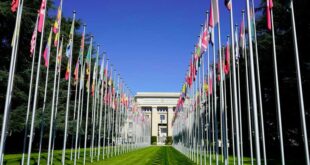Eng. Saleem Batayneh
In the Arab East, the perilous landscape of the writing profession mirrors the broader challenges of speech and opinion. The pressing question looms: Does anyone still read, and if so, how do we read? Regrettably, reading seems to have lost its urgency and allure for intellectuals and thinkers in the Arab world, transforming them into instruments of drumming, propaganda, and advertising.
Drawing inspiration from the works of French radical writer and philosopher Guy Debord (1931-1994), particularly “The Society of Spectacle,” we find a striking parallel to our current predicament. Debord’s concept of a world submerged in spectacle and image, where reality appears as illusion, resonates with the social, political, cultural, and economic transformations in our own reality.
The Arab scene inherits the shortcomings of the Arab renaissance project, manifesting in a political reality that resembles an open theater showcasing a tragicomedy of a fractured reality. Silence prevails, and the truth is obscured, creating a surreal moment of deception with lurking devils in every detail.
Arab societies have been subdued, reduced to passive recipients with diminished ability to transmit. The challenge for Arab policies lies in transcending the stage of spectacle, as Arabs shift from seekers of spectacle to consumers of mediocrity. This shift was poignantly encapsulated by Arab writer Muhammad Al-Maghout and Syrian artist Duraid Lahham in their 1979 play, “Your Cake, O Homeland,” where Lahham declares, “By God, father, we have become a relief, and we are only missing a little dignity!”
The urgent need arises for a new term that more accurately describes our Arab situation. Debord’s insights can be applied straightforwardly to the structure of the Arab system, where many countries have become reliant on show and image.
Distinguishing the West from the East, we observe that the West produces its symbols, while the East searches for symbols to passively consume. Absence of reason begets absurdity, and this absurdity is magnified when we consider the indicators before us. A measured approach is essential, steering clear of excessive optimism or drowning in despair.
We live in the era of spectacle, where we have become more spectators than actors. The society of spectacle falls short in generating symbols. Reform becomes subjective, viewed through individual lenses. As Naguib Mahfouz remarked, the future leans more towards the image than the letter, echoing the sentiment of French philosopher Règis Debray: “He who owns the image owns the country.”
Tragically, Arab reality has become a complex labyrinth woven with spectacle and image-centric media. Societies crave entertainment, even fabricating it from thin air, perhaps as an escape from an unyielding reality fraught with contradictions and disappointments.
Our Arab societies find themselves ensnared in a hypnotic trance, and the words of German anthropologist Ludwig Feuerbach from 1841 eerily echo Debord’s later sentiments: “There is no doubt that our era represents the image over the thing! Acting on reality! And appearance over existence! And the copy is on the original! What is sacred is nothing but an illusion! What is profane is the truth.” The challenge remains to navigate this intricate maze, dissecting the illusions from the truths that shape our Arab existence.
Eng. Al Batayneh was a member of the Jordanian Parliament.
 Geostrategic Media Political Commentary, Analysis, Security, Defense
Geostrategic Media Political Commentary, Analysis, Security, Defense





